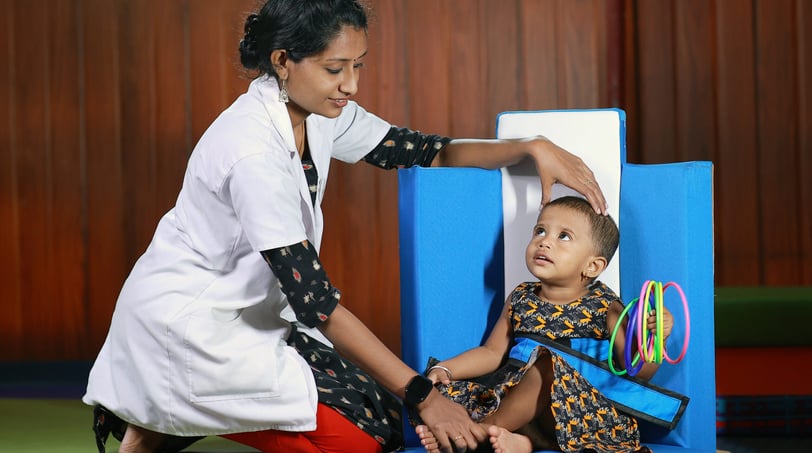Understanding ADHD in Children: Challenges, Support, and Ideal Caregivers
Children with ADHD face various challenges in school, home, and social settings, but with the right approach and caregivers, they can thrive. Structured routines, behavioral interventions, and emotional support are key in helping ADHD children lead fulfilling lives. Parents, educators, and trained caregivers must work together to create an environment that nurtures their potential and ensures their well-being. By fostering patience, understanding, and tailored support, children with ADHD can overcome obstacles and succeed in their personal and academic journeys.
4/30/20232 min read


Introduction
Attention-Deficit/Hyperactivity Disorder (ADHD) is a neurodevelopmental condition that affects millions of children worldwide, including India. Characterized by symptoms such as inattention, hyperactivity, and impulsivity, ADHD can impact a child's academic performance, social interactions, and daily functioning. Proper understanding, timely intervention, and the right caregivers play a crucial role in managing ADHD effectively.
Challenges Faced by ADHD Children
Children with ADHD experience various difficulties in different aspects of life. Some of the key challenges include:
Academic Struggles
Difficulty focusing on tasks and following instructions.
Struggles with completing homework and organizing materials.
Inconsistent performance in school despite intelligence and effort.
Social and Emotional Issues
Trouble making and maintaining friendships due to impulsivity.
Increased risk of anxiety, low self-esteem, and emotional outbursts.
Misunderstandings and rejection from peers and family members.
Behavioral Difficulties
Impulsivity leading to disruptive actions in class or social settings.
Hyperactivity causing restlessness and difficulty in structured environments.
Difficulty regulating emotions and responding to discipline.
Family and Home Life Challenges
Parental stress due to managing behavioral issues.
Sibling conflicts arising from perceived unfair treatment.
Need for constant supervision and structured routines.
How to Handle ADHD Children
Managing children with ADHD requires patience, structure, and consistency. Some effective strategies include:
Creating a Structured Routine
Establishing a daily schedule to provide stability.
Using visual schedules, timers, and reminders to aid organization.
Behavioral Therapy and Positive Reinforcement
Rewarding positive behaviors and setting clear expectations.
Using a firm yet supportive approach to discipline.
Encouraging mindfulness techniques and self-regulation exercises.
Personalized Learning Approaches
Breaking tasks into manageable steps to maintain focus.
Allowing movement breaks to accommodate hyperactivity.
Using multi-sensory learning techniques for better engagement.
Social and Emotional Support
Encouraging participation in structured social activities.
Teaching communication skills and emotional regulation techniques.
Providing counseling or therapy when needed.
Medical and Dietary Considerations
Consulting a pediatrician or psychiatrist for medical guidance.
Ensuring a balanced diet rich in nutrients to support brain function.
Limiting sugar and processed foods to reduce hyperactivity symptoms.
Who is the Perfect Caregiver for ADHD Children?
The ideal caregiver for a child with ADHD should be someone who understands their needs, remains patient, and provides consistent support. The best caregivers include:
Parents and Family Members
Educated about ADHD and equipped with coping strategies.
Able to provide emotional stability and encouragement.
Engaged in therapy and training sessions for effective management.
Special Educators and Trained Teachers
Experienced in handling ADHD-related learning challenges.
Skilled in using adaptive teaching methods for better engagement.
Patient, flexible, and willing to accommodate individual needs.
Child Psychologists and Therapists
Provide behavioral therapy and emotional guidance.
Help in developing coping strategies and self-regulation techniques.
Support parents in managing behavioral challenges effectively.
Nannies and Caregivers with ADHD Training
Specially trained to handle hyperactivity and impulsivity.
Provide a structured environment for daily activities.
Encourage positive reinforcement and support in social situations.
Conclusion
Children with ADHD face various challenges in school, home, and social settings, but with the right approach and caregivers, they can thrive. Structured routines, behavioral interventions, and emotional support are key in helping ADHD children lead fulfilling lives. Parents, educators, and trained caregivers must work together to create an environment that nurtures their potential and ensures their well-being. By fostering patience, understanding, and tailored support, children with ADHD can overcome obstacles and succeed in their personal and academic journeys.
Care
Compassionate healthcare for those in need.
Trust
Support
support@vcarecharitabletrust.com
+91 7700019520
© 2025 Vcare Charitable Trust & Hospitals. All Rights Reserved.
